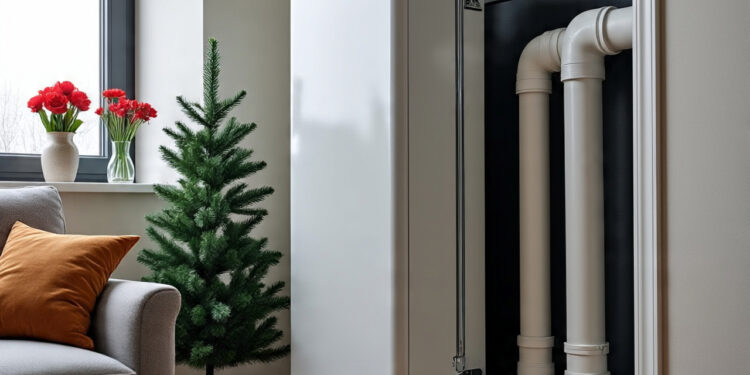Seasonal weather patterns have a significant influence on the performance, efficiency, and longevity of residential heating and cooling systems. As temperatures rise, fall, and fluctuate throughout the year, HVAC equipment must adjust to new demands. These shifts can place stress on various components, affecting how well the system functions. Understanding how different seasons impact HVAC performance helps homeowners prepare for changing conditions and manage their equipment responsibly. Many families rely on trusted professionals such as Climate Systems Air Conditioning & Heating to ensure their systems stay reliable during every part of the year.
Seasonal temperature swings can affect both energy consumption and comfort levels inside the home. When the weather transitions suddenly, HVAC systems may need to work harder to keep up with new conditions. This sudden demand can expose weaknesses that would otherwise remain unnoticed. Homeowners who understand these seasonal effects can take steps to maintain consistent performance and avoid unexpected breakdowns. This awareness helps them plan more effectively, prioritize maintenance, and ensure that their systems remain dependable throughout the year.
Different seasons bring unique challenges for heating and cooling systems. Winter demands steady heating, while summer requires prolonged cooling. Spring and fall may seem mild, but they introduce fluctuating temperatures and indoor-air concerns that affect performance. By understanding how seasonal patterns influence HVAC equipment, homeowners can protect their systems, manage energy use, and maintain a comfortable living environment.
How Winter Conditions Influence HVAC Performance
Winter places a considerable workload on heating systems. As temperatures drop, the system must run more frequently and for longer periods to maintain comfort. Cold air also creates challenges for airflow, often causing the system to push harder to distribute warm air evenly. In homes with older equipment, winter increases the likelihood of breakdowns, especially if maintenance has been neglected.
Cold weather can also impact outdoor components. Units exposed to freezing temperatures may experience reduced efficiency or mechanical issues. Ice buildup can block components or interfere with normal operation. Homeowners who prepare early by scheduling inspections and cleaning their systems can reduce the risk of unexpected outages. Routine service helps ensure the heating system is ready for extended winter use.
Summer Temperatures and Their Impact on Cooling Equipment
Summer conditions also place stress on HVAC systems, particularly in regions with high humidity or intense heat. Cooling systems must work for extended hours each day to regulate indoor temperatures. This constant operation can cause wear on fans, compressors, and electrical components. Dust and debris may accumulate in outdoor units, impacting airflow and reducing efficiency.
High humidity adds an additional challenge. HVAC equipment must remove moisture from the air to maintain indoor comfort, which increases the workload on cooling systems. Without proper maintenance, this extra effort may lead to reduced performance or rising energy bills. Preparing the system before summer arrives helps improve comfort and prevent overheating of critical components.
Spring and Fall: The Transition Seasons
Spring and fall present unique challenges because temperatures change rapidly from warm to cool or vice versa. These frequent shifts require HVAC systems to adjust constantly. During spring, pollen and dust levels rise, often affecting indoor air quality and clogging filters. If filters are not replaced regularly, the system may struggle to maintain consistent performance.
In fall, leaves and outdoor debris may accumulate around the exterior unit, blocking airflow. As temperatures cool, homeowners may begin using their heating systems again, which requires clean filters and properly functioning components. These transitional seasons are ideal times for maintenance because the system can be prepared for the extreme weather ahead.
The Role of Humidity in System Performance
Humidity levels fluctuate throughout the year and significantly influence HVAC performance. High humidity makes the air feel warmer, causing cooling systems to work harder. Low humidity in winter can dry out living spaces, encouraging homeowners to run their heating systems more frequently. Both extremes place stress on HVAC components.
Balancing humidity helps maintain comfort and reduces strain on the equipment. Proper ventilation and regular filter changes help the system manage moisture levels more effectively. Technicians from Climate Systems Air Conditioning & Heating often evaluate humidity concerns during routine visits, offering solutions that improve indoor comfort and system performance.
The Importance of Seasonal Maintenance
Seasonal weather changes highlight the importance of regular maintenance. Before each major season begins, homeowners benefit from system inspections that ensure components remain clean and functional. Maintenance tasks such as replacing filters, clearing debris from outdoor units, and checking electrical connections help the equipment perform more efficiently through changing conditions.
Seasonal maintenance also helps reduce energy costs. Systems that run smoothly use less energy and maintain indoor comfort more consistently. When maintenance becomes a routine part of home care, performance improves regardless of seasonal shifts.
How Weather Patterns Affect Energy Consumption
Heating and cooling account for a significant portion of household energy use. Seasonal temperature changes directly influence how often the system must run. During peak seasons, homeowners may notice increased energy consumption as the equipment works harder. Preparing the system before these periods helps homeowners manage costs more effectively.
Insulation, ventilation, and overall system condition affect how weather influences energy use. Homes with well-maintained systems experience fewer fluctuations in energy bills and maintain more stable indoor temperatures throughout the year.
Preventing Seasonal Breakdowns Through Preparedness
Seasonal breakdowns often occur when systems are not prepared for increased demand. Winter and summer place the greatest strain on equipment, making early preparation essential. Routine checks help identify worn components, leaks, or blockages before they lead to major issues. Addressing these concerns early ensures a smoother transition into the next season.
Breakdowns are not only inconvenient but can also be costly when emergency service becomes necessary. Proper preparation reduces the likelihood of sudden failures and helps homeowners maintain confidence in their system’s reliability.
Conclusion
Seasonal weather changes play a major role in determining how well a home’s heating and cooling system performs. As temperatures rise and fall, HVAC equipment must adjust to new demands, often revealing hidden issues or inefficiencies. With consistent maintenance and thoughtful preparation, homeowners can protect their systems through every season. By relying on experienced professionals like Climate Systems Air Conditioning & Heating, families ensure their equipment remains reliable, efficient, and ready for whatever conditions lie ahead.







